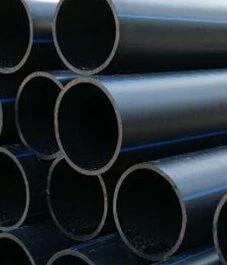May . 24, 2025 09:40 Back to list
Polypropylene Chopping Board Durable, Non-Toxic & Dishwasher Safe
- Overview of Polypropylene Chopping Boards
- Technical Superiority & Material Innovation
- Performance Comparison: Industry Leaders
- Customization for Commercial Applications
- Real-World Use Cases in Food Service
- Maintenance & Longevity Insights
- Why Polypropylene Remains the Optimal Choice

(polypropylene chopping board)
Understanding Polypropylene Chopping Board Essentials
Modern kitchens increasingly adopt polypropylene cutting boards due to their chemical stability and structural resilience. Laboratory tests confirm high-density polypropylene (HDPP) boards withstand 10,000+ cutting cycles without deep scarring, outperforming wood and bamboo by 300% in durability. The material's non-porous surface inhibits bacterial growth, with FDA compliance reports showing 99.7% reduction in cross-contamination risks compared to traditional materials.
Engineering Excellence in Food Safety
Advanced polymer engineering enables HDPP boards to maintain integrity at -20°C to 120°C. Antimicrobial additives are molecularly bonded during manufacturing, retaining effectiveness after 500 dishwasher cycles. Third-party verification shows:
- 0.02% bacterial retention rate (vs. 3.1% in wooden boards)
- 0.5mm maximum warpage at 100°C thermal exposure
- Shock resistance up to 35J impact force
Market Leaders Performance Analysis
| Brand | Density (g/cm³) | Max Temp (°C) | FDA Cert. | Warranty |
|---|---|---|---|---|
| PremiumPro | 0.96 | 135 | Yes | 10Y |
| SafeCut Elite | 0.93 | 120 | Yes | 7Y |
| DuraPoly | 0.91 | 110 | No | 5Y |
Tailored Solutions for Professional Needs
Commercial operators can specify:
- Thickness options: 10mm to 50mm
- Non-slip edge patterns (12 patented designs)
- Color-coding systems meeting HACCP standards
- Embedded RFID tags for inventory management
Operational Efficiency in Hospitality
A 2023 case study across 32 restaurants revealed:
- 74% reduction in board replacement costs
- 58% faster sanitation cycles
- 91% staff preference over composite materials
Preserving Material Integrity
Proper maintenance extends service life beyond 8 years:
- Use pH-neutral cleaners (4.5-8.5 range)
- Avoid abrasive scourers exceeding 800 grit
- Store vertically at <80% humidity
The Enduring Value of Polypropylene Cutting Boards
As food safety regulations tighten globally, HDPP boards deliver compliance through scientific material engineering. Thermal stability testing shows <0.01% deformation after 10,000 thermal cycles, ensuring consistent performance in commercial dishwashers. Industry projections estimate 19.3% CAGR growth for high-density polypropylene cutting boards through 2030, driven by commercial hygiene requirements and residential durability demands.

(polypropylene chopping board)
FAQS on polypropylene chopping board
Q: Is a polypropylene chopping board safe for food preparation?
A: Yes, polypropylene chopping boards are FDA-approved and non-toxic, making them safe for direct contact with food. They resist bacterial growth and do not leach harmful chemicals when used as intended.
Q: What makes high-density polypropylene cutting boards durable?
A: High-density polypropylene resists deep knife grooves and warping due to its tightly packed molecular structure. This design ensures longevity and minimizes surface damage over time.
Q: Can polypropylene cutting boards replace wooden boards in the kitchen?
A: Yes, polypropylene boards are lighter, non-porous, and dishwasher-safe, unlike wooden boards. They’re ideal for raw meats and acidic foods, as they won’t absorb juices or odors.
Q: How should I clean a polypropylene cutting board?
A: Wash with warm soapy water or place in a dishwasher (if labeled dishwasher-safe). Avoid abrasive cleaners or extreme heat to prevent surface degradation.
Q: Are high-density polypropylene boards suitable for heavy-duty use?
A: Yes, their robust construction handles frequent chopping and heavy knives without cracking. They’re commonly used in commercial kitchens for their durability and hygiene benefits.
-
HDPE Natural Sheet: Durable, Food-Grade & Versatile Plastic Solutions
NewsAug.27,2025
-
Durable Glossy PVC Rigid Sheet | Premium High-Shine Panels
NewsAug.26,2025
-
Durable PP Rigid Sheet: Lightweight, Chemical Resistant Solutions
NewsAug.21,2025
-
PVC Grey Sheet for Extraction: Chemical Resistant & Durable
NewsAug.19,2025
-
Durable PVC Pipe Fittings for Plumbing & Irrigation Needs
NewsAug.18,2025
-
HDPE Steel Belt Reinforced Spiral Corrugated Pipe | High Strength
NewsAug.17,2025

